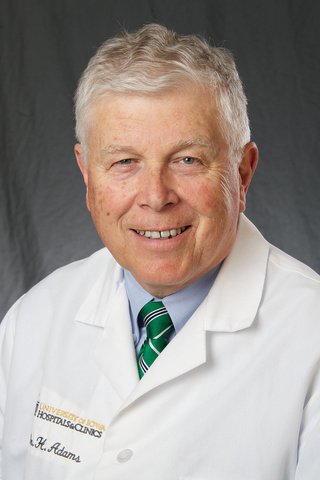
“Stroke can be prevented. Stroke can be cured,” says Harold Adams, MD, professor emeritus of neurology. “Patients who used to die or become disabled from strokes, now may be able to return to normal life. And that is something we couldn’t say 20 years ago.”
With a career spanning more than 50 years, as a professor and provider, and as author of hundreds of published articles, Adams is an expert in stroke care. He recently shared seven ways to reduce your chance of having a stroke.
Adams says strokes are due to a variety of illnesses, and if any of the following conditions affect you, he urges swift and proactive measures.
- Treat your hypertension, which is usually defined as blood pressure above 140/90. High blood pressure is associated with an increased risk of both bleeding and ischemic stroke. A normal range is less than 120/80. Exercising, eating a healthy diet, and maintaining a normal weight are three ways to improve your blood pressure.
- Stop smoking. According to the Centers for Disease Control and Prevention (CDC), smoking causes one in four deaths from cardiovascular disease.
- Avoid drug use, such as amphetamines or cocaine.
- Partner with your primary care physician. Together you can treat any risk factors that are associated with stroke and heart attack.
- Manage your cholesterol. A healthy diet goes a long way toward keeping cholesterol levels in the normal range. Reduce saturated fats, increase fiber intake, and eat more foods that are rich in Omega-3 fatty acids, including salmon, flaxseeds, and walnuts.
- Exercise regularly. The CDC recommends at least 150 minutes of moderate-intensity aerobic activity each week.
- Reduce stress. There are many ways to accomplish this, including yoga, meditation, counseling, laughter, and getting adequate sleep.
While it’s critical to try and prevent stroke, Adams says it’s also important to know the warning signs of stroke. If you suspect you or a loved one is having a stroke, seek help immediately.
“Time is critical with stroke,” says Adams. “Remember that time is brain.”